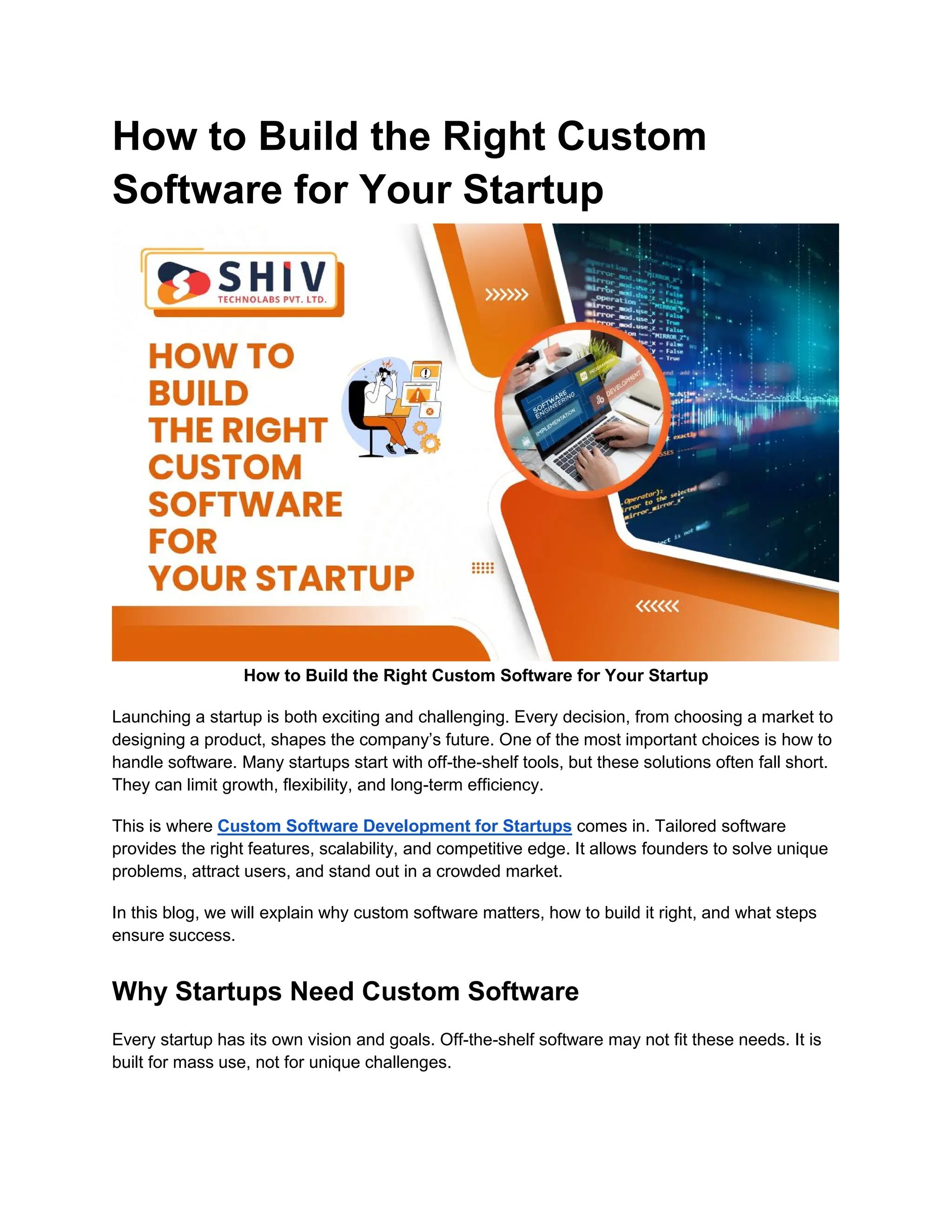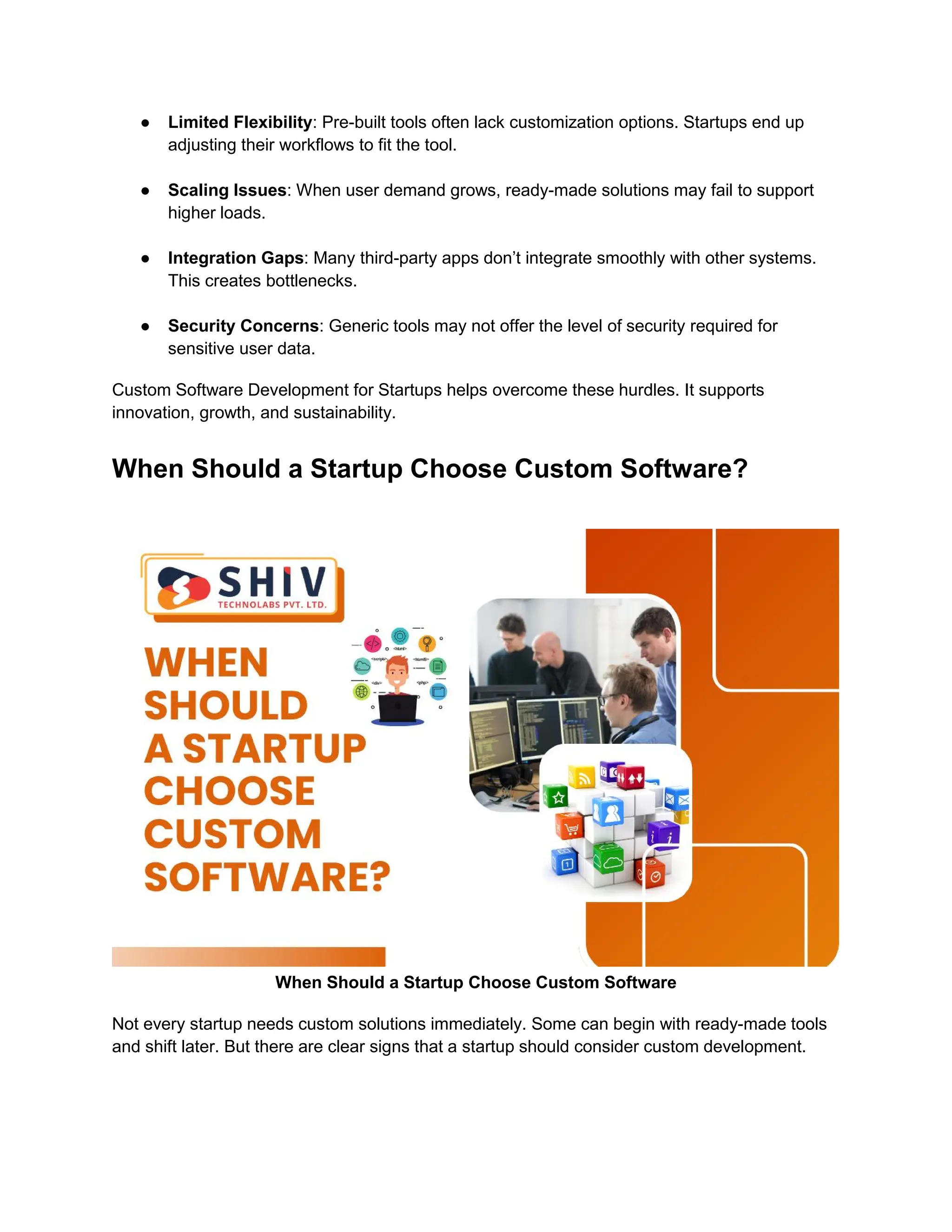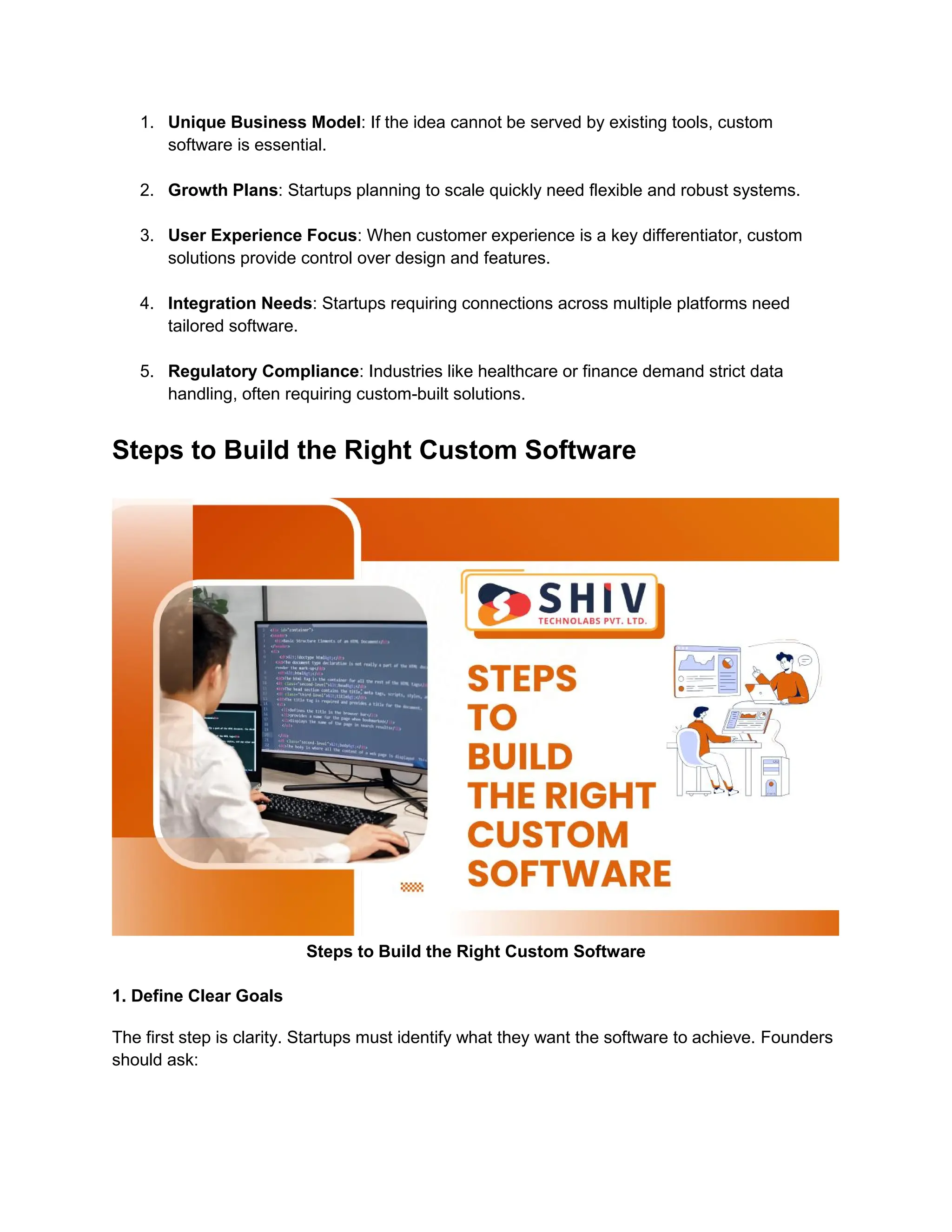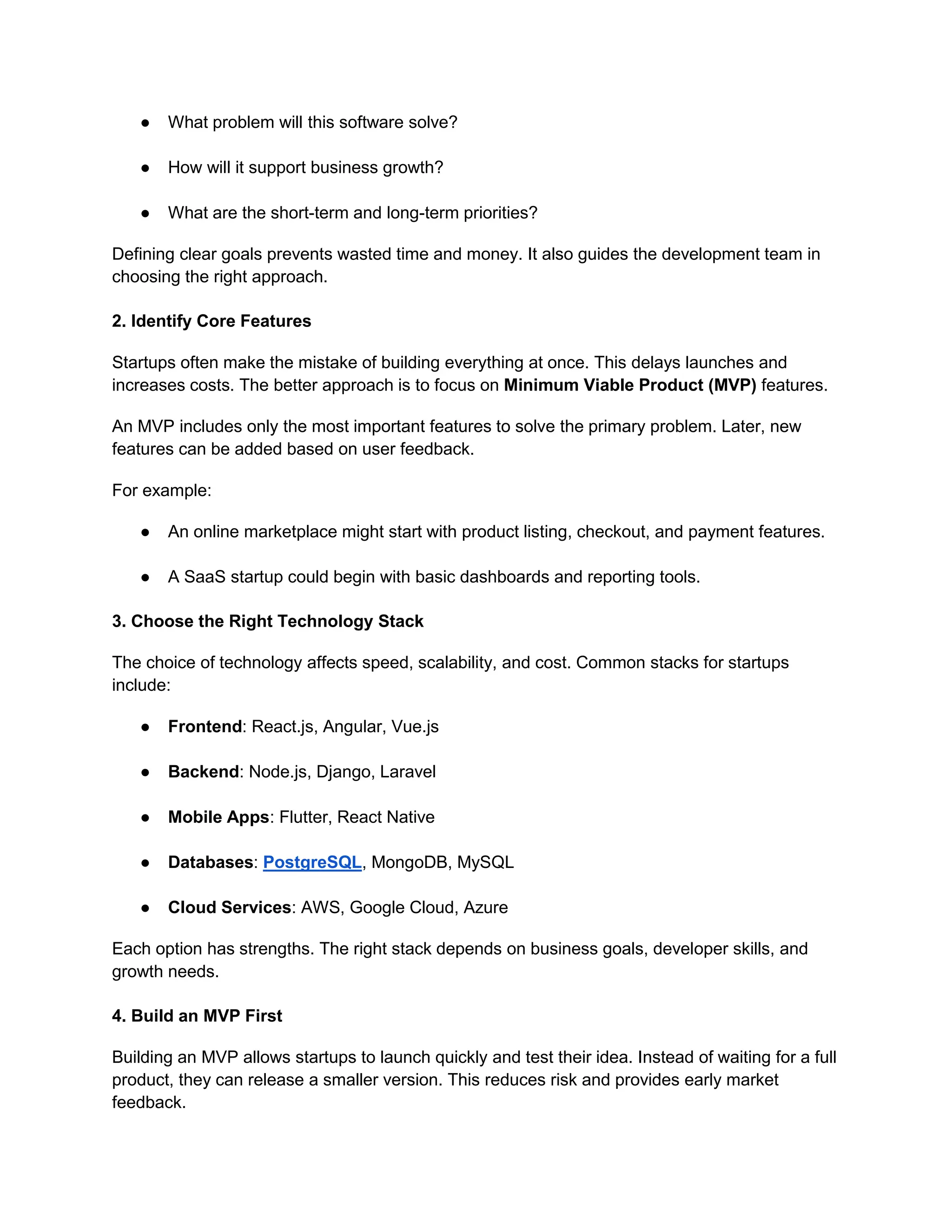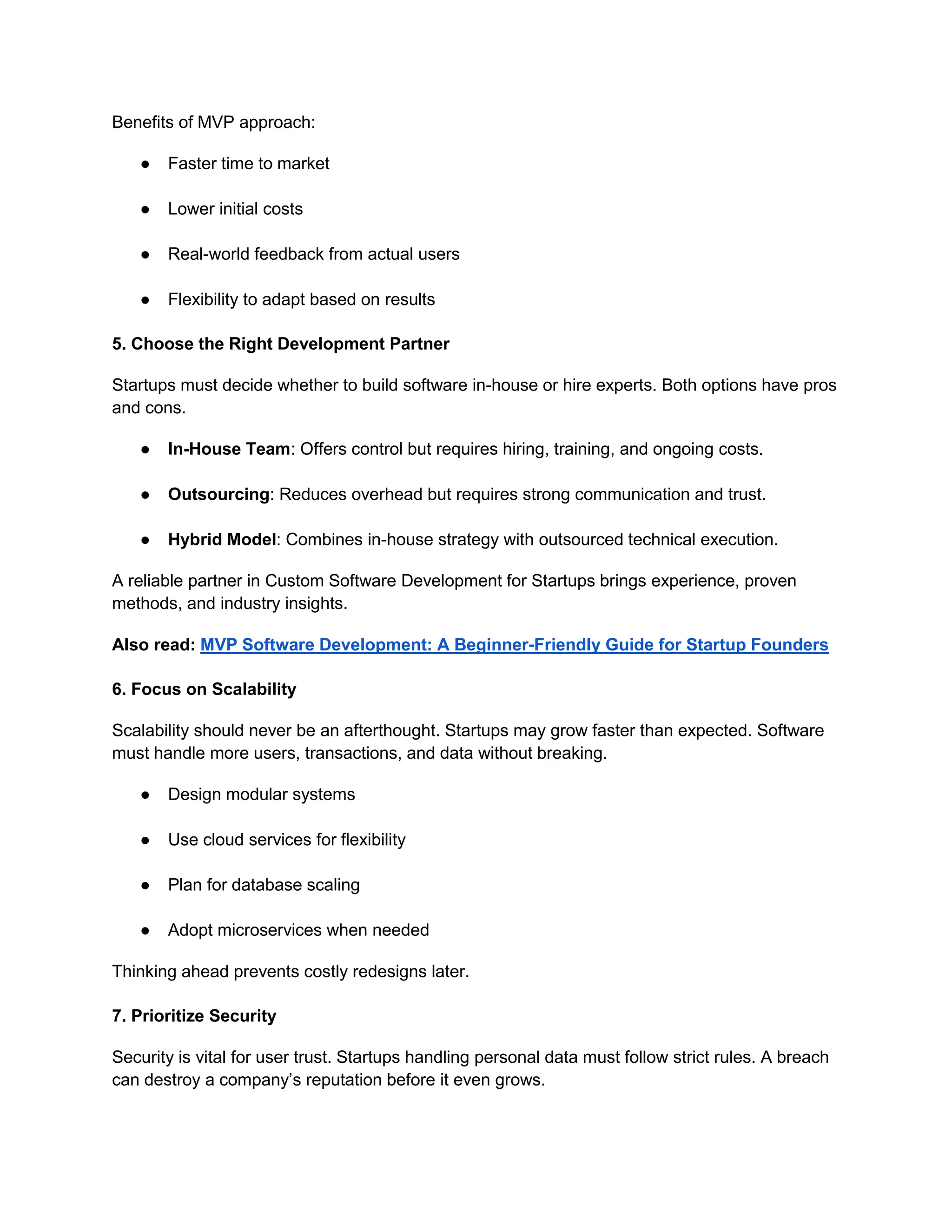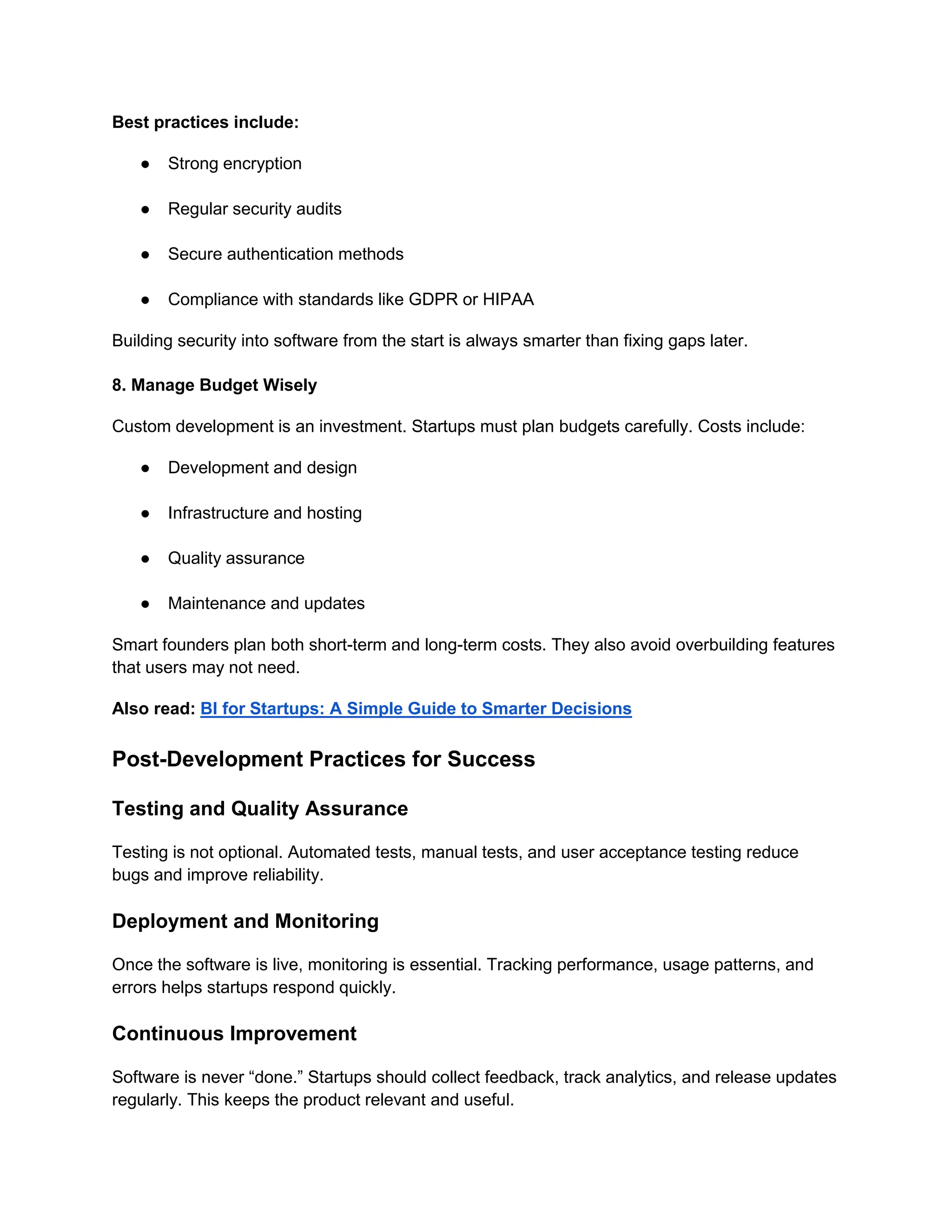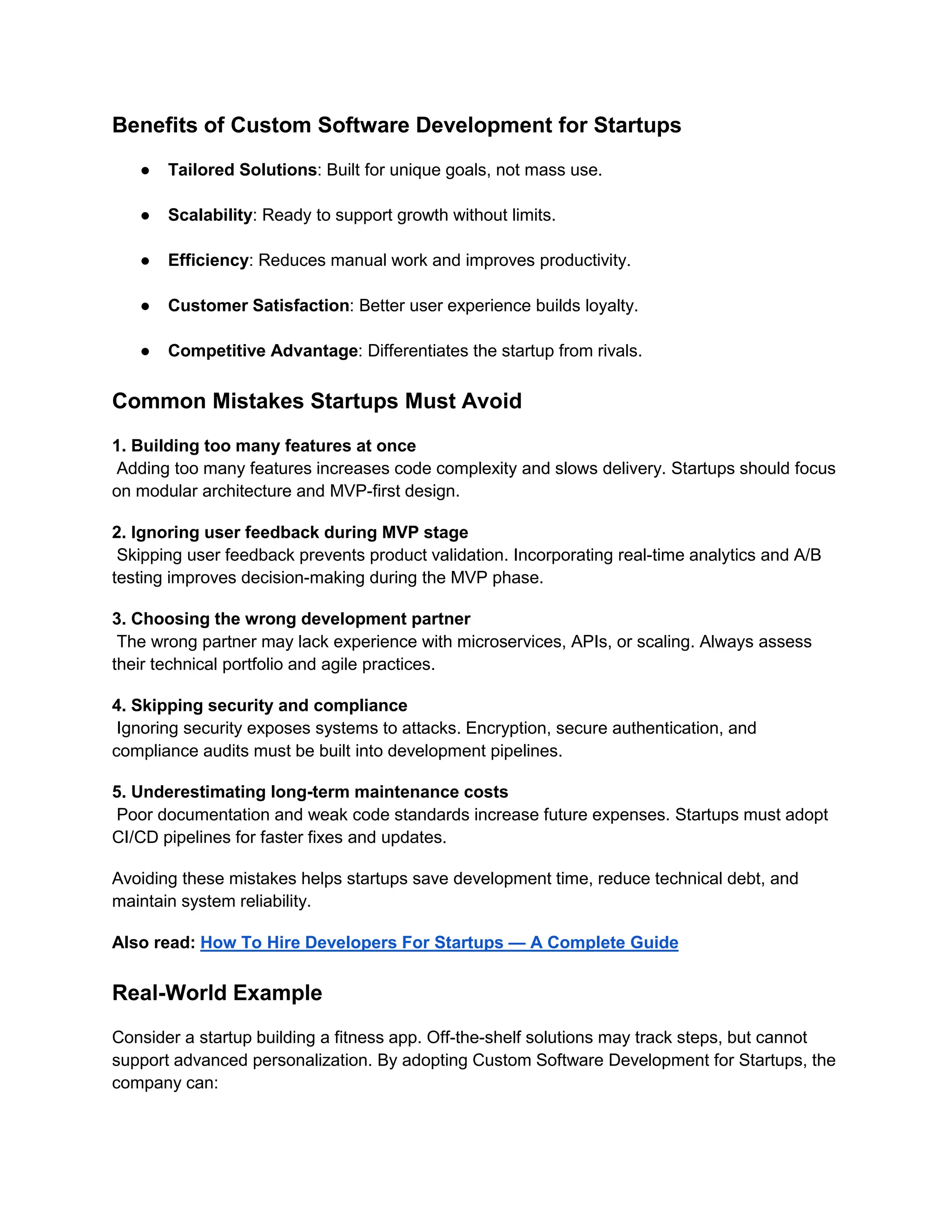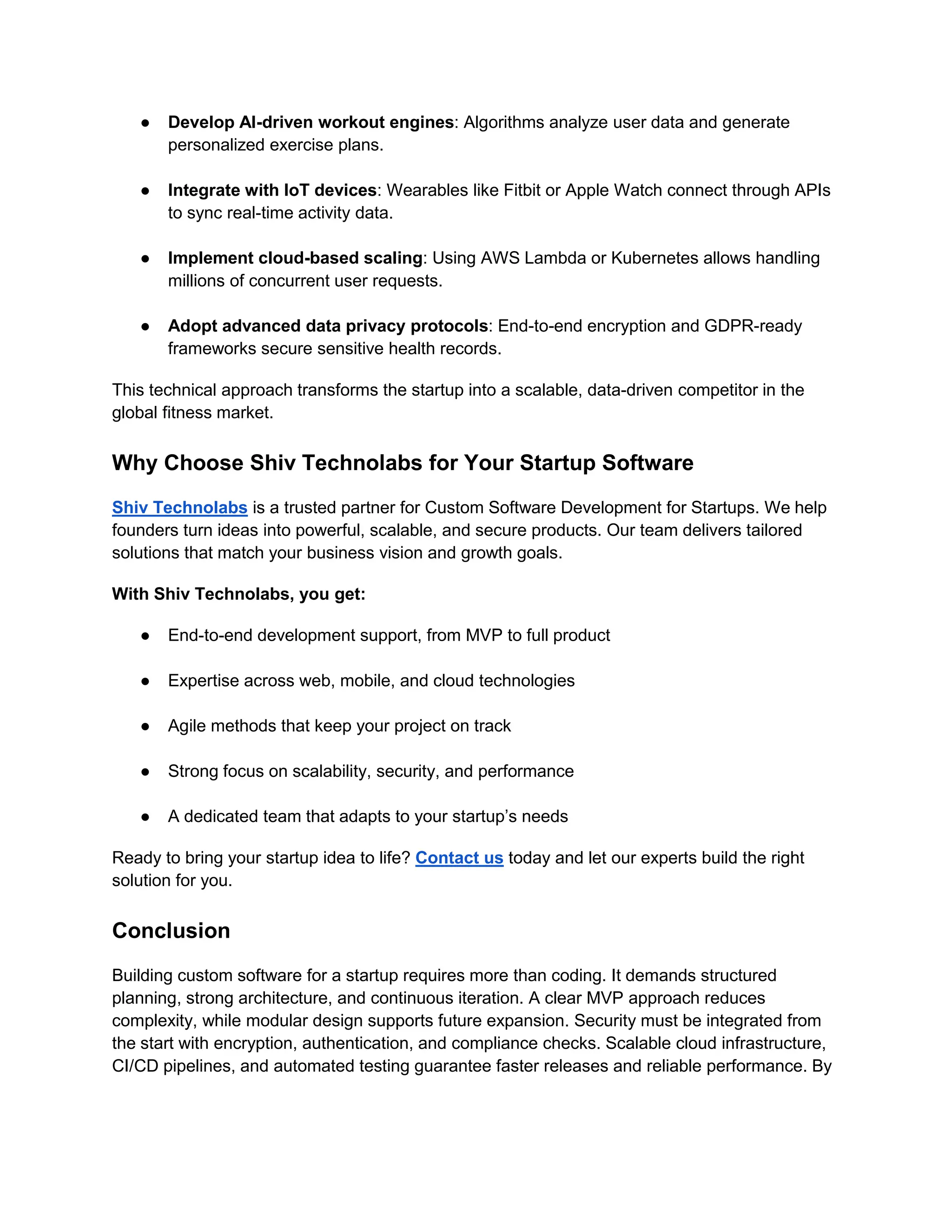This blog, Startup Growth with Custom Software Solutions, explains how a young company can use tailor-made software to scale fast. It covers basics like selecting proper architecture (monolithic vs microservices), choosing suitable tech stacks (front-end frameworks, databases, cloud services), setting up robust APIs, and ensuring security.
Also included are steps for requirements gathering, prototype design, testing, and maintenance. After reading, founders will understand what to ask from developers, how to plan software budget, and how to track progress with custom software development for startups.
